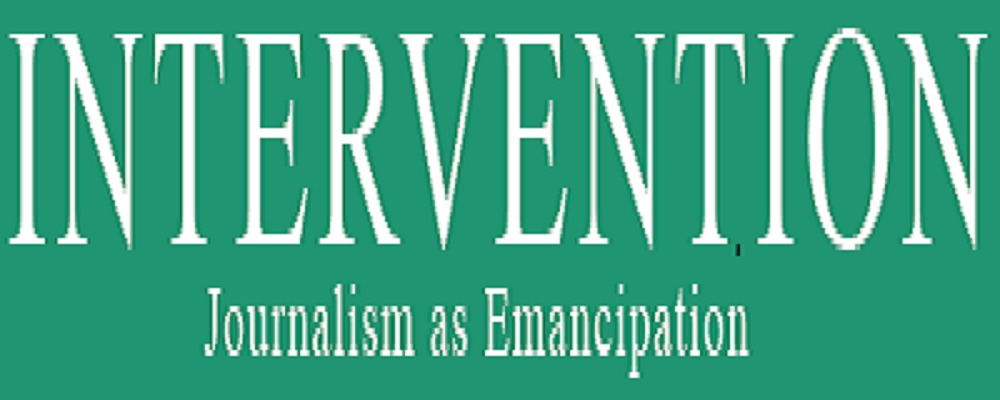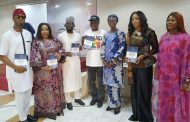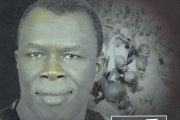Started July 27th, 2016, Intervention is exactly three years old today. It was a very exciting moment at Intervention earlier this week when a 45 year old editorial by the defunct New Nigerian on the peril of oil based economy surfaced on the social media. It was exciting for all those connected with Intervention because that reinforced Intervention’s 10th story on July 31st, 2016, just three days after the birth of the platform. The story was titled “Does Northern Nigeria Need Oil?, It ran in two parts. Not only has President Buhari spent four of the eight years he could hope to spend without oil coming yet, the best oil finds ever possible can take no more than 1% off the unemployment market, meaning how unhelpful oil can be to a country that is mired in unspeakable unemployment and poverty as Nigeria today. In any case, oil find in the North will not go exclusively to the region because mineral resources belong to central governments in most countries in the world.
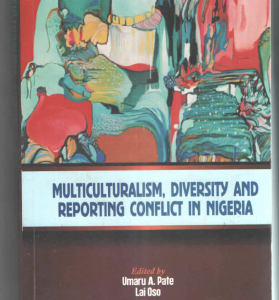
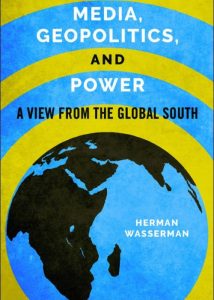 Paradoxically, this was, in addition to the inaugural story on Joseph Tarka, what estranged Intervention from its first batch of angry critics. They didn’t want anything of that sort said. Additionally, this batch was angry that the story on Tarka credited Prof Mvendaga Jibo, the leading scholarly authority on Tarka, with being the coiner of the ‘Kaduna Mafia’ phrase, a reference the critics interpreted to mean that Intervention was established by people who wanted to intensify division in the North.
Paradoxically, this was, in addition to the inaugural story on Joseph Tarka, what estranged Intervention from its first batch of angry critics. They didn’t want anything of that sort said. Additionally, this batch was angry that the story on Tarka credited Prof Mvendaga Jibo, the leading scholarly authority on Tarka, with being the coiner of the ‘Kaduna Mafia’ phrase, a reference the critics interpreted to mean that Intervention was established by people who wanted to intensify division in the North.
If an analysis based on multiples of voices across place, religion, specialization, ethnicity and even class as well as on the emergent geopolitics of global energy, (the rise of the great powers and their future projections on energy and global power), could be so blatantly (mis)interpreted, then it was important to ignore such interpreters and whatever good their readership could bring. There has been no regret in doing so. This is more so when a January 3rd, 2019 story on Intervention clocked 32, 558 clicks, excluding readers on Facebook and Twitter. We became even more convinced of the correctness of ignoring some people especially as unfolding reality in each case confirmed our main stories in the first six months of the platform as can be seen in the following selected headlines:
- “Nigeria: Herdsmen Conflict is Civil War in the Making”, (16/08/2016)
- “Chinua Achebe’s Arrow of God for President Buhari?”, (03/09/2016)
- “Herdsmen Violence: Fulani Model of Being ‘Biafrans’ or False Allegation Against a ‘Historically Dominant Minority?’, (05/10/2016)
- “Islamising Nigeria: The Sultan Versus Prof Ben Nwabueze”, (13/10/2016)
- “History in Nigerian Schools, But What Manner of History?”, (31/10/2016)
- Parting Shot: Kwararafa Owns Nigeria – Jukun Leader Jibrin Amfani”, (28/10/2016)
- “OBJ Versus Buhari: One Way Out of a Historical Conflict”, (28/11/2016)
- “Brexit in UK and the Unwanted president in the US: The Risk Society in Full Flight”, (10/11/2016)
- “Why Has a Castro Eluded Nigeria?”, (27/11/2016)
- “Borno Elders on Managing the Shi’ites Crisis: The Ancient Speaks to the Modern State”, (09/12/2016)
- “CLEEN Foundation Calls for Review of Military Involvement in Conduct of Elections as Re-run Turns Violent in Nigeria’s Rivers State”, (12/12/2016)
- “Editorial: Atiku Abubakar and the Burden of Restructuring”, 15/12/2016)
- “Why Buhari is Implicated in Insecurity in Nigeria – Prof Shedrack Best”, (01/01/2017.
If the listing is extended deeper into 2017 stories, it would show even more how this platform had touched on all the key issues in contention in Nigeria today, three full years earlier, alerting or pointing at the missing links long before emergency critics came to it. But, like the story of oil in the North, each one of the above stories angered those who ought to benefit from the message. So, they went after the messenger. In one instance, some officials who have nothing doing started going about campaigning against Intervention because it was inferred that Buhari has something to learn from Ezeulu’s crisis in Achebe’s Arrow of God. Another player, this time a self-advertised kingpin of politics, concocted and spread his own venom against Intervention. And so on and so forth in intrigue against a small fry. But time and God has given a lie to everything all the different antagonists told people about and against Intervention. Today, all such people are the ones in disrepute. It was thus strategic to have ignored them, in spite of the risks they posed.

Editors at the 2018 launching of the book on display. That is the book, ‘Watchdogs or Captured Media’ edited by Prof Olukotun
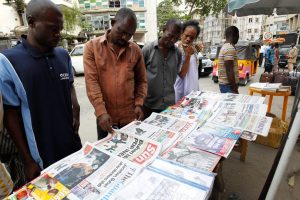
Nigerian newspapers on display
But ignoring those various set of critics does not suggest being angry with any such people or any group at all. No! It only means we leave them to time and to their conscience to overcome their fears, their sense of alarm or disappointment with that platform called Intervention. Otherwise, we receive criticism with excitement. We seek it even. By experience, education and orientation, everyone associated with Intervention is a solid product but reality in all of life’s realms is not something settled. For that reason, no one here is so sure of him or herself as to say that criticism is not welcome. And we cannot adequately thank those who rail at us each time they think we have strayed off.
These are rarely those who write their disagreements with what we write. There are those who don’t write anything but whose silent signals could suggest we have got one thing or the other mixed up. And they are many. And they are not people who have any reasons beyond altruism for scolding us. They are simply excited that some chaps they have known for a long time are into interpretive or opinionated reporting at a time of great confusion across the world.
All in all, there is a collective reading that when a platform or an institution or a direction elicits the diversity of reception that greeted Intervention, that platform or direction is doing something right. Or doing things according to what it set out to do. Now, what did Intervention set out to do?
The name Intervention is the answer to that question. It sees itself as a platform for a multi-vocal approach to peaceful coexistence, the most important requirement for preserving Nigeria which itself needs preservation because it is, in the words of Ali Mazrui, “the largest concentration of blacks under one government in the history of the world”. The complexity that comes with being such a mega-nation makes multi-vocal narration of Nigeria critical to national survival of Nigeria more than many other nations.
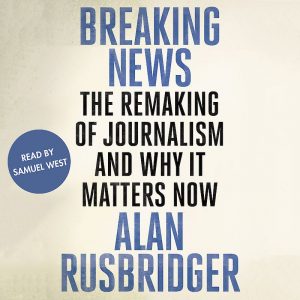
The book by Rusbridger at his retirement
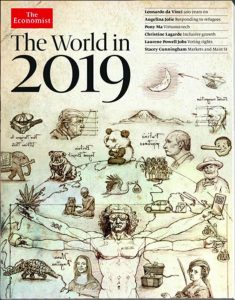
Peeping into 2019 last January
The implication of this standpoint is that journalism must not be about indulging dominant language groups, places and hegemonic narratives. It must also be about a deliberate effort at bringing subjugated voices to the everyday negotiation of the nation so that unheard screams in every corner of the country can be nationalized and attended to. This is what emancipatory politics demands as opposed to the ossified sense of radicalism, for example, that suggests that only inequality at class level is what is important. Exploitation at broad class level might be the reality but disaffection against exploitation is more often than not framed in terms of identity ideologies of nationalism, race, ethnicity, clan and religion. This has been the lesson for emancipatory politics from the painful violent conflicts in East Europe that provoked and also marked the end of the Cold War.
For this reason, Intervention will continue on its existing path because it is right to do so. That is the path of activist, crusading reportage rather than the pretentiously neutral actor removed from what it is narrating. We will remain aloof from journalism of predictable, everyday stories but continue to emphasise on a critical angle to a selected event, that being what has marked us out both for condemnation but also for commendation and recommendation. We agree we need to post more stories but as soon as people stop complaining that they require time to finish reading the last one. We are more than keen to expand the cultural, geographical and thematic radius but how soon we do that depends on resource mobilisation. Those who write for Intervention are not fictitious elements simply because the stories do not carry bye-lines. Most stories do not carry bye-lines simply because, like the UK based The Guardian, Intervention prides itself as a paper without an editor or an owner or an overarching controller.
The story idea could emanate from one extreme, be researched and scripted by someone in another extreme, edited to standard at yet another extreme before making its way to readers. In any case, Intervention has been fascinated by the approach of ‘No bye-line’ by The Economist and has adopted it for the same philosophical reasons given by that British magazine. It is interesting that it is those who consume The Economist almost without question who are complaining that Intervention has no bye-lines.
It is only three years old. There is still so much to do. As Alan Rusbridger who for long was editor of The Guardian in the UK says in the video below, this is where the future of journalism is, In the immediate future, the effort to transform the platform into a true cross between journalism and academia will receive greater attention because, to defend the future, we must not leave education to the formal processes thereto alone.
We are still postponing thanking those who relentlessly supply news hints, storylines, ideas to explore and so on. The time is still not now. As the undergraduate parlance in Nigeria has it, permit us to carryover that ‘course’.

